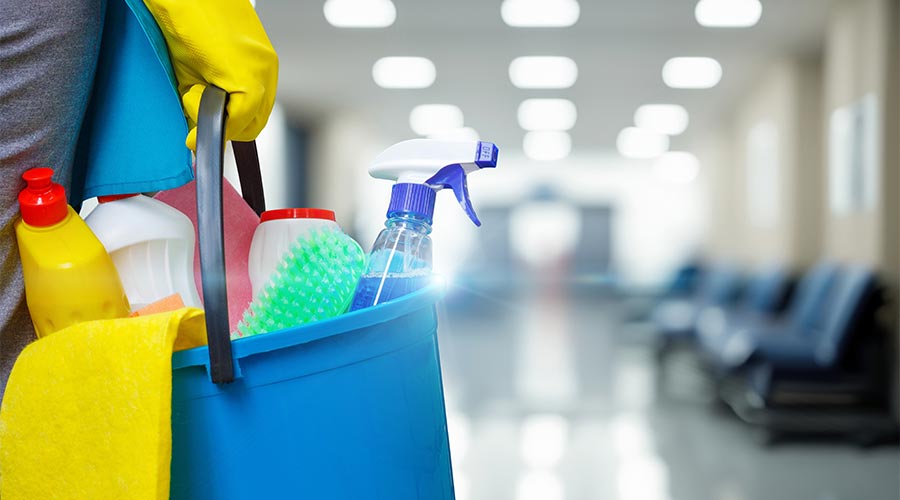
The Alliance for Chemical Distribution (ACD) partners with more than 400 chemical distribution industry members to provide the education, connection, standards, and advocacy needed to responsibly and safely move the essential products our world depends on. The movement of high-quality chemical products used in medicine and health care, food and agriculture, clean water and sanitation, energy production, and electronics are a critical aspect of the chemical supply chain and Americans’ everyday lives. As leaders in the more than $27 billion chemical distribution industry, ACD members have a deep expertise and commit to the highest standards in quality, safety, sustainability, and performance through ACD Responsible Distribution.
Here are some of the most important areas of conversation today on which ACD team members specialize:
Trade and Chemical Supply Chain Impact
Chemical distribution is a global business. While the industry navigates trade uncertainties, ACD supports the renewal of key trade programs, such as the Generalized System of Preferences (GSP) and the Miscellaneous Tariff Bill (MTB), that increase access to products that are no longer produced domestically. ACD can provide insight on the impact of recent trade decisions and the need for these programs to ensuring the smooth flow of the chemical supply chain.
Ocean Cargo Shipping
For years, ocean carrier practices have harmed both businesses and consumers in the U.S. While the continued implementation of the Ocean Shipping Reform Act (OSRA) has helped to hold ocean carriers accountable for high shipping rates and anticompetitive practices, some chemical distribution businesses are still feeling the impacts of shippers’ arbitrary decision-making. ACD can speak to how these factors compounded with port congestion, aging infrastructure, and labor strikes have created significant challenges for the chemical supply chain.
Ongoing Freight Rail Service Challenges
Across the country, businesses large and small depend on rail service to connect them with customers. The chemical industry is one of the largest customers of freight rail in both volume and revenue. However, rail service has been inadequate and unreliable for years, leading to nationwide service disruptions and safety issues. The recent proposed rail merger between Union Pacific and Norfolk Southern would exacerbate these challenges to the detriment of its customers. ACD can speak to the highly concentrated nature of the freight rail industry and why it’s encouraging the Surface Transportation Board to oppose the merger.
Regulatory Rollback
As one of the most heavily regulated industries in the nation, ACD members take seriously their responsibility of safety. The last few years, however, have brought an onslaught of regulatory burdens from a variety of agencies, which has threatened the industry’s ability to remain competitive. ACD can provide insight on the recent changes happening at the Environmental Protection Agency, such as the reevaluation of the Risk Management Program (RMP) rule and changes to the TSCA Risk Evaluation rule, and the Department of Labor, such as review of the hazard communications standard, worker walkaround designation process, heat injury prevention, and independent contractor rules, and ACD’s overall work to provide regulatory relief while shaping smart policy.
Chemical Facility Security
Despite nearly two decades of bipartisan support, the Chemical Facility Anti-Terrorism Standards (CFATS) program expired. Without the vital support of this successful public-private partnership, high-risk chemical facilities are left to manage site security, recognize vulnerabilities, and ensure comprehensive employee background checks on its own. This is particularly concerning as chemical facilities and communities face increased exposure to new threats and potential acts of terror. ACD can offer insight into how the industry has had to step up and the importance of the program’s reauthorization.
Safe Handling, Use, and Transportation of Chemicals
Data shows that ACD members have fewer safety incidents than chemical distribution companies that do not belong to the alliance. This is a testament to ACD’s Responsible Distribution, a comprehensive set of environmental, health, safety, security, and sustainability standards within the chemical industry. The program demands continuous improvement in every phase of chemical storage, handling, transportation and disposal. ACD has unique expertise and in-depth knowledge of this responsible handling, use, and transportation of essential chemical products.
PFAS
As many states and cities nationwide have recently imposed bans on Per- and Polyfluoroalkyl substances (PFAS), distributors and warehousers of chemicals are navigating how to phase out Aqueous Film Forming Foam (AFFF) fire suppression systems, which are critical to keeping facilities safe in the event of an accidental chemical fire. The cost of replacing these systems, however, can run into hundreds of thousands of dollars, which presents a considerable burden for small and medium-sized businesses who can’t afford the capital expenditure. ACD can speak to the financial burdens on many of their members, many of which are small businesses, and the ways Congress can help.
Market Analysis
ACD and its economic team follow industry indicators to assess their impacts on the economy at large and the chemical distribution industry. The team estimates the economic impact of various proposed policies, such as tariffs, on the industry and the estimated trends experienced by the industry year-over-year.

 Celebrating BSCAI's 60th Anniversary eBook
Celebrating BSCAI's 60th Anniversary eBook The Down and Dirty on Cleaning in Virus Season
The Down and Dirty on Cleaning in Virus Season How Surfactant Use is Expanding in Commercial Cleaning
How Surfactant Use is Expanding in Commercial Cleaning